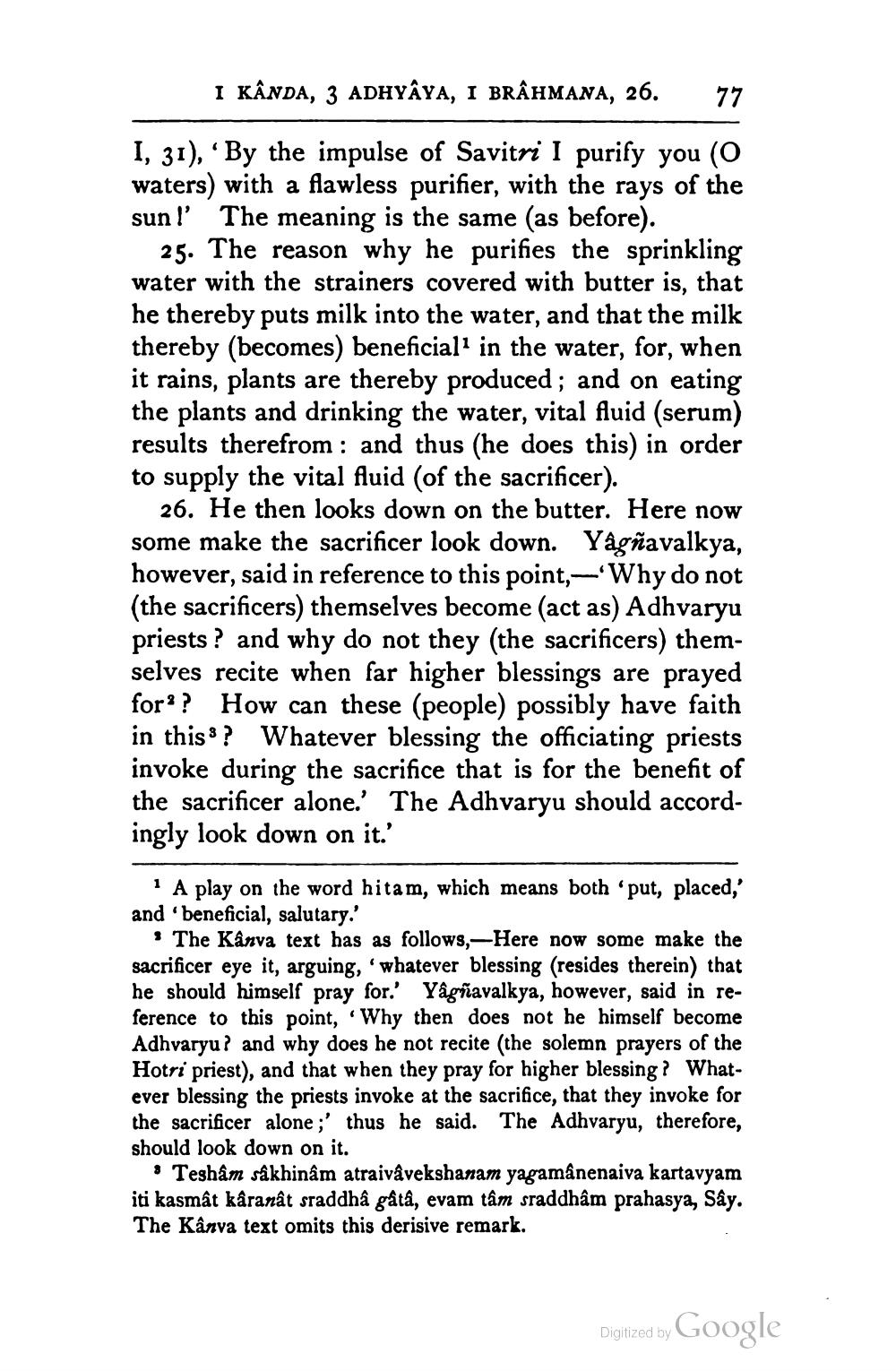________________
I KÂNDA, 3 ADHYAYA, I BRÂHMANA, 26.
77
I, 31), ' By the impulse of Savitri I purify you (O waters) with a flawless purifier, with the rays of the sun!' The meaning is the same (as before).
25. The reason why he purifies the sprinkling water with the strainers covered with butter is, that he thereby puts milk into the water, and that the milk thereby (becomes) beneficial" in the water, for, when it rains, plants are thereby produced ; and on eating the plants and drinking the water, vital fluid (serum) results therefrom: and thus (he does this) in order to supply the vital fluid (of the sacrificer).
26. He then looks down on the butter. Here now some make the sacrificer look down. Yagñavalkya, however, said in reference to this point,-'Why do not (the sacrificers) themselves become (act as) Adhvaryu priests ? and why do not they (the sacrificers) themselves recite when far higher blessings are prayed for?? How can these (people) possibly have faith in this 3 ? Whatever blessing the officiating priests invoke during the sacrifice that is for the benefit of the sacrificer alone.' The Adhvaryu should accordingly look down on it.'
1 A play on the word hitam, which means both .put, placed,' and 'beneficial, salutary.'
The Kânva text has as follows, -Here now some make the sacrificer eye it, arguing, 'whatever blessing (resides therein) that he should himself pray for. Yågñavalkya, however, said in reference to this point, Why then does not he himself become Adhvaryu? and why does he not recite (the solemn prayers of the Hotri priest), and that when they pray for higher blessing? Whatever blessing the priests invoke at the sacrifice, that they invoke for the sacrificer alone;' thus he said. The Adhvaryu, therefore, should look down on it.
• Teshâm sâkhinâm atraivavekshanam yagamanenaiva kartavyam iti kasmat käranât sraddha gåtâ, evam tâm sraddhâm prahasya, Sây. The Kânva text omits this derisive remark.
Digitized by Google




